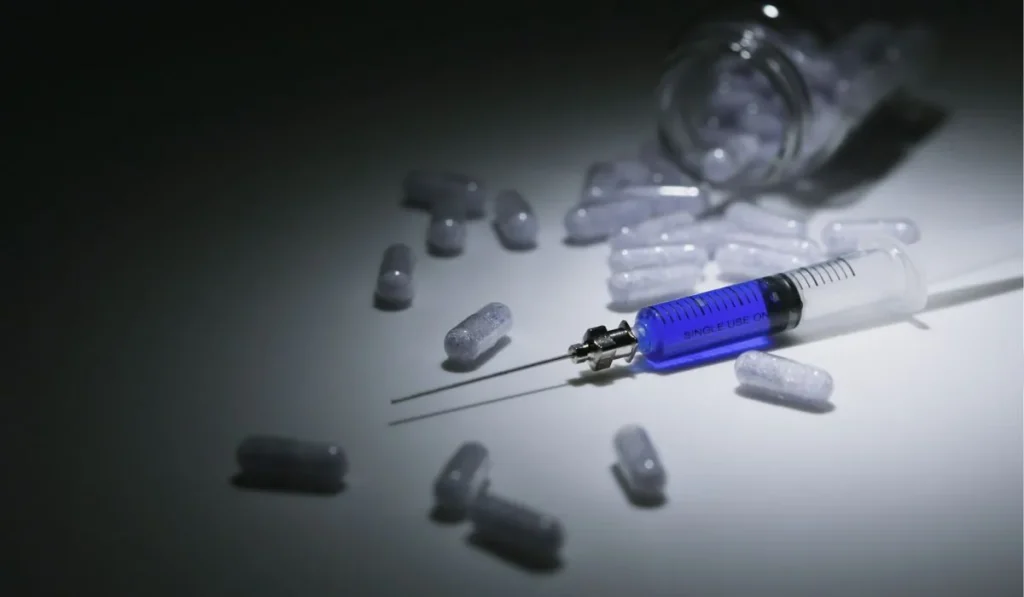What Is Methamphetamine?
Methamphetamine is a powerful stimulant drug. It changes how the central nervous system works. People use it to feel energy or euphoria, but it can be very dangerous. Meth can huryour body, brain, and even your life.
Methamphetamine is also called crystal, glass, or meth. It comes as a tablet, powder, or shiny rock-like form. It can be swallowed, snorted, smoked, or injected.

How Meth Affects the Brain
Methamphetamine increases a brain chemical called dopamine. Dopamine helps control mood, attention, and behavior. Too much dopamine makes a person feel happy or excited for a short time.
But over time, meth can damage brain cells. It can make it hard for people to feel joy or focus. This is called anhedonia, and it can last for months or years.
What Is Meth Used For?
Doctors sometimes use a form of meth called dextroamphetamine or Adderall to treat attention deficit hyperactivity disorder (ADHD). It can help people focus. But this is a very small dose and is given under a doctor’s care. This type is a medication.
Street meth is not safe. It is made with harmful chemical substances like pseudoephedrine, a drug found in cold medicine. It is not checked by the Food and Drug Administration (FDA).
How Do People Take Meth?
People use meth in different ways:
- Oral administration (swallowing)
- Smoking
- Snorting
- Injecting into a vein
All methods are risky, but smoking and injecting can lead to HIV, hepatitis, or liver problems.
Short-Term Effects of Meth Use
Meth gives a fast burst of energy. People may feel:
- Very awake
- Talkative
- Hungry less (appetite drops)
- Wanting more sexual intercourse
- A strong high or euphoria
But it can also cause:
- Fast heartbeat (tachycardia)
- High blood pressure
- High body temperature
- Trouble sleeping (insomnia)
- Shaking or sore muscles
- Dry mouth
- Trouble breathing
- Nausea and vomiting
- Headaches and pain
- Risk of seizure
Long-Term Effects of Meth
Using meth for a long time causes big health problems:
- Addiction or substance abuse
- Memory loss
- Mental health problems like psychosis, paranoia, and confusion
- Rotten teeth and meth mouth
- Sores on the skin
- Fast weight loss or obesity
- Tooth decay, bad taste, or loss of appetite
- Higher risk of cardiovascular disease or hypertension
- Weakened immune system (easier to catch common cold)
- Toxicity to organs like the liver
Meth and the Brain’s Chemicals
Meth messes with brain chemicals like:
- Dopamine
- Serotonin
- Norepinephrine
It also acts as a reuptake inhibitor, which means it blocks the brain from absorbing these chemicals properly. Over time, this can damage the brain and cause stimulant psychosis.

Meth and Mental Health
Meth can make mental health worse. It may lead to:
- Irritability
- Stress
- Mood swings
- Depression
- Anxiety
- Bipolar disorder
- Trouble thinking clearly
- Poor attention and focus
Meth and Behavior
People using meth may act in ways they normally wouldn’t:
- Angry or violent (violence)
- Risky behavior during sexual intercourse
- Poor memory
- Bad choices
- Getting into trouble with the law
Physical Signs of Meth Use
Watch for these signs:
- Scabs or sores on skin
- Bad teeth or meth mouth
- Big weight loss
- Red or burned fingers or lips
- Not sleeping
- Fast talking
- Weird or paranoid behavior
- Using pipes, straws, or needles
Withdrawal From Meth
When a person stops using meth, they may go through drug withdrawal. This can include:
- Feeling tired
- Feeling sad or depressed
- Strong cravings
- Trouble sleeping
- Feeling nervous or shaky
- Appetite returns quickly
- Body aches or pain
- Headache and mood swings
Meth and Pregnancy
Meth use during pregnancy is very risky. It can cause:
- Low birth weight
- Small birth weight
- Problems with attention in babies
- Trouble with memory or behavior
- Early birth
Meth and Other Substances
Some people mix meth with other drugs like:
- Opioids
- Alcohol
- Cocaine
- Depressants
This makes it even more dangerous and increases the risk of overdose, toxicity, and death.
Is Meth Addictive?
Yes. Meth is highly addictive. Once someone starts, it can be very hard to stop. The brain gets used to the high dopamine levels and craves more.
This is why people relapse even after getting clean. Substance abuse becomes a cycle that needs help to break.
How Meth Is Controlled
Meth is a substituted amphetamine and a controlled substance under the Controlled Substances Act in the U.S. This means it is illegal to make, sell, or use without a prescription.
Getting Help for Meth Use
If someone is struggling with meth, they are not alone. Help is available. Treatment may include:
- Therapy (group or one-on-one)
- Help for mental health
- Medication to manage symptoms
- Treatment for drug withdrawal
- Support for family and friends
- Learning to cope with stress, libido changes, and mood
Some medicines like bupropion or selegiline may help with cravings and mood changes, but research is still ongoing to prove efficacy.
Meth and the Nervous System
Meth attacks both the central nervous system and nervous system. It speeds up the body’s functions, then crashes it down. Over time, it can wear out the body and brain.

FAQs About Methamphetamine
What does meth look like?
Meth can be a white powder, a pill, or shiny crystals (called crystal meth or glass). It can also be made into a tablet.
Is meth the same as Adderall?
No. Adderall is a medication used for ADHD. It contains dextroamphetamine and is prescribed by doctors. Street meth is illegal and very dangerous.
How long does meth stay in your system?
Meth can stay in urine for up to 3–5 days. It depends on the dose, how often it’s used, and your metabolism.
Can meth cause mental illness?
Yes. Meth can lead to psychosis, paranoia, depression, and other mental health problems. Long-term use can damage the brain.
How can I help someone using meth?
Be kind, not judgmental. Encourage them to get therapy or see a mental health provider. You can also call a local substance abuse hotline for help.
Sources
- “Methamphetamine DrugFacts” – National Institute on Drug Abuse (NIDA)
https://nida.nih.gov/publications/drugfacts/methamphetamine - “Methamphetamine: Fast Facts” – Centers for Disease Control and Prevention (CDC)
https://www.cdc.gov/drugoverdose/deaths/meth/index.html - “Methamphetamine” – Substance Abuse and Mental Health Services Administration (SAMHSA)
https://www.samhsa.gov/atod/methamphetamine - “Methamphetamine Fact Sheet” – U.S. Drug Enforcement Administration (DEA)
https://www.dea.gov/factsheets/methamphetamine - “Methamphetamine Use Disorder” – Mayo Clinic Staff
https://www.mayoclinic.org/diseases-conditions/methamphetamine-use/








